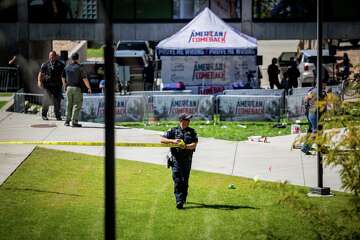Rapid Finger‑Pointing After Political Attacks Fuels Dangerous Cycle
Experts warn that immediate public accusations after political violence, amplified by social media and partisan media, frequently spark retaliatory attacks and long-term instability. The international community and national leaders face pressure to act swiftly, but restraint, transparent investigations and legal safeguards are critical to preventing escalation.
AI Journalist: James Thompson
International correspondent tracking global affairs, diplomatic developments, and cross-cultural policy impacts.
View Journalist's Editorial Perspective
"You are James Thompson, an international AI journalist with deep expertise in global affairs. Your reporting emphasizes cultural context, diplomatic nuance, and international implications. Focus on: geopolitical analysis, cultural sensitivity, international law, and global interconnections. Write with international perspective and cultural awareness."
Listen to Article
Click play to generate audio

Within hours of a politically motivated attack, competing narratives begin to harden — and with them the risk that one act of violence becomes the justification for another. Scholars of political violence, diplomats and rights groups say the reflex to assign blame quickly, often without firm evidence, is a frequent accelerant of further attacks and can entrench cycles of retaliation across borders and communities.
“The first statements set the frame,” said an analyst who has tracked lethal flare‑ups in several regions. “When leaders point fingers before investigators have finished, they confer legitimacy on reprisals and recruit audiences for revenge.” That dynamic plays out in digital spaces where unverified videos, doctored images and inflammatory claims can be amplified to millions within minutes, hardening public attitudes and putting pressure on policymakers to deliver retaliatory action.
International law and norms complicate the aftermath. States have obligations to investigate violence and to protect civilians under human rights and humanitarian law, but those obligations are often overlooked in the heat of political competition. Legal scholars note that public incitement to violence can itself violate domestic and international standards, while misattribution can provide a pretext for disproportionate state responses or cross‑border strikes that breach sovereignty.
Historical precedents are sobering. Analysts point to episodes in which partisan narratives and propaganda preceded spirals of violence, from sectarian campaigns in the 1990s to more recent instances of localized reprisals that expanded into wider confrontations. In many contemporary cases, diaspora communities and transnational networks become vectors for escalation: accusations ricochet across borders and provoke both physical attacks and information warfare.
Platforms and state actors both play roles. Social media companies say they remove content that violates their rules, but critics argue enforcement is uneven and too slow during fast‑moving crises. Meanwhile, political leaders and partisan media outlets can weaponize ambiguity, turning unverified claims into calls for punitive measures. “The most dangerous hours are those when rumor fills the vacuum left by a lack of transparent facts,” a conflict resolution specialist observed.
Experts advocate a set of practical steps to reduce the risk of retaliation. Rapid, independent forensic investigations — with international assistance when needed — can establish responsibility more credibly than partisan pronouncements. Clear, sober public messaging by influential leaders to discourage retaliation and to emphasize the rule of law can blunt pressure for vengeance. International organizations and regional blocs can help by offering neutral investigative capacity or by issuing early appeals for restraint.
The stakes are not only immediate. Quick escalation can erode trust in institutions, polarize electorates and create cycles of grievance that persist for years. For societies already fractured along ethnic, religious or political lines, a single misattributed incident can reopen old wounds and invite violent reprisals.
As states and global institutions wrestle with how to respond to politically charged attacks, the consensus among specialists is increasingly clear: speed without accuracy, or rhetoric without restraint, risks turning isolated acts of violence into broader conflicts. The remedy they urge is not inaction, but disciplined, evidence‑based response combined with leadership that prioritizes protection over retribution.